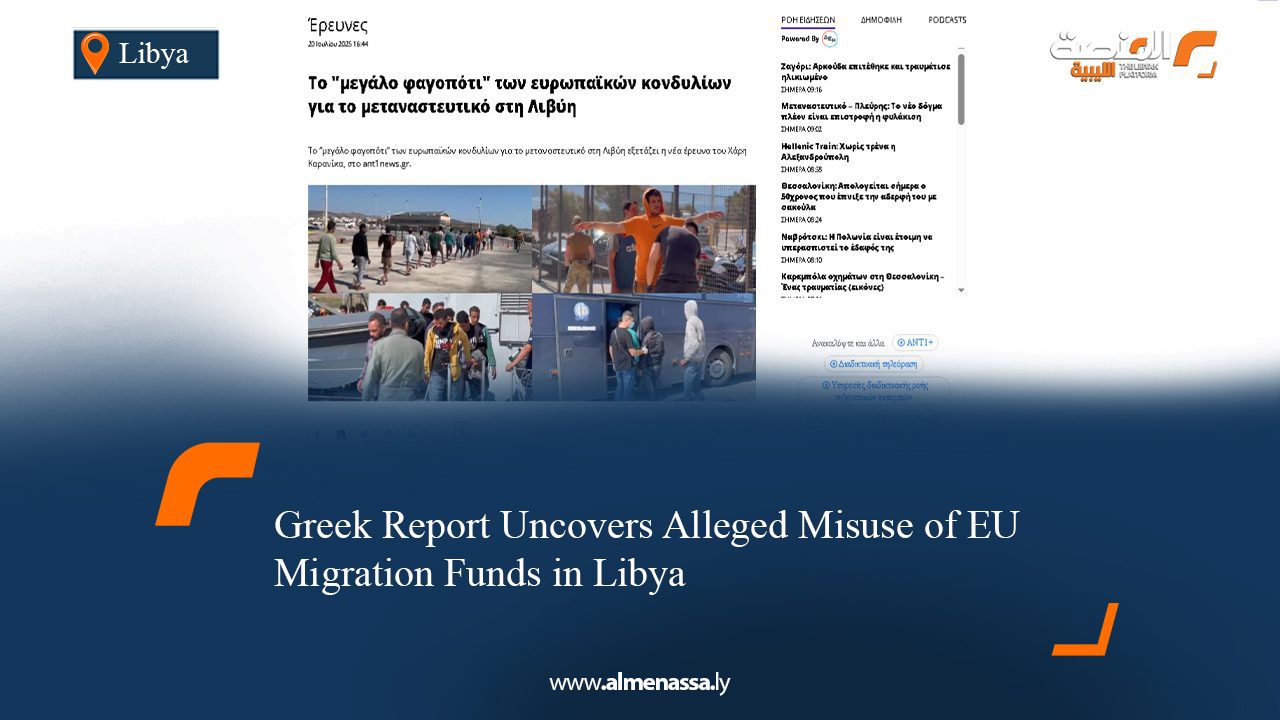A recent investigative report by Greece’s ANT1News has revealed what it describes as “chaos” in the management of European Union funds allocated to address irregular migration in Libya. The report, translated by Al-Manassa, points to serious concerns over how hundreds of millions of euros, intended to support migrant protection and strengthen Libyan border control, have been spent.
According to the findings, portions of the funding were allegedly diverted to unofficial entities or used in questionable ways, undermining the stated goals of improving shelter conditions and combating trafficking networks. Instead, the report suggests that the funds may have inadvertently empowered local groups linked to the migration file, contributing to continued abuses against migrants.
The investigation comes amid growing criticism of the EU’s migration policies, with human rights organizations accusing Brussels of prioritizing border control over safeguarding migrant rights in Libya.
Amnesty International echoed these concerns, describing the EU’s cooperation with Libyan authorities as “unethical” and warning that it enables further violations. More than 30 organizations, including Statewatch, have urged the European Commission to redirect its funding toward life-saving measures and alternatives to dangerous migration routes.
David Yambio, from Refugees in Libya, called on the EU to suspend its collaboration with Libyan security forces and open safe pathways for those stranded in the country.
The European Court of Auditors also raised red flags in its review of the EU Emergency Trust Fund for Africa, warning that some Libya-related projects may lack sufficient oversight and that equipment provided could be misused by unintended actors, highlighting gaps in transparency and accountability.
In response, the EU issued a statement emphasizing that its funding should be used to save lives and offer safe alternatives to perilous journeys out of Libya.
As allegations of corruption and mismanagement mount, and calls for reform intensify, the need for robust oversight remains central to ensuring migrant protection and restoring credibility to EU-funded initiatives in Libya.


